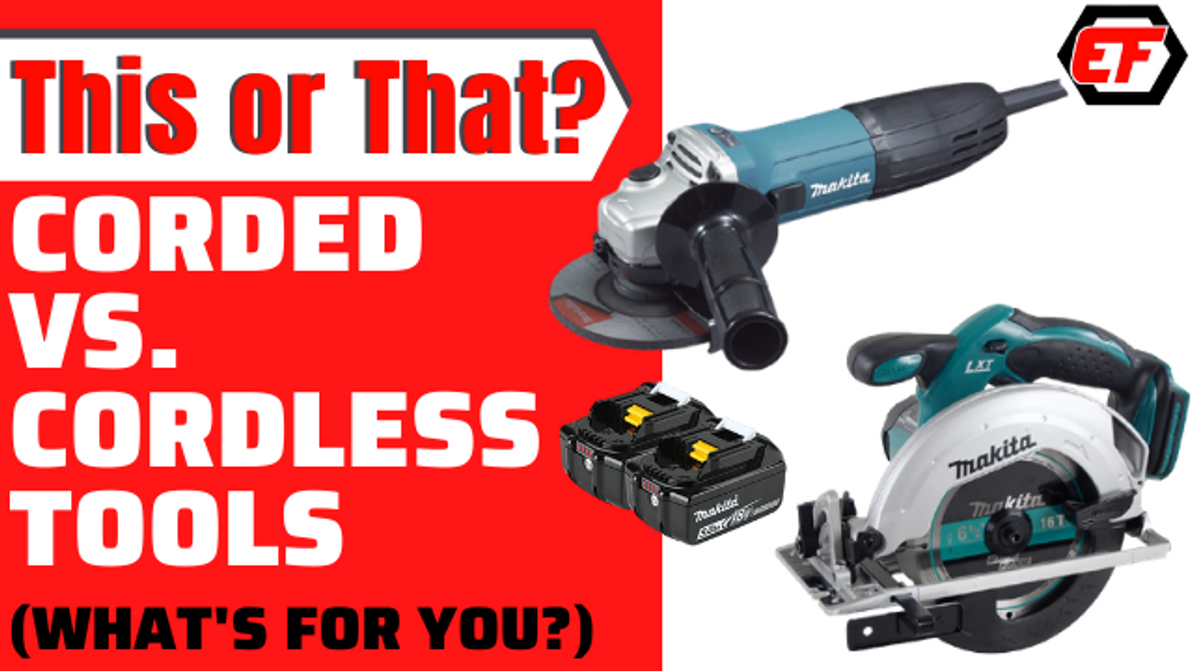Corded vs. Cordless Tools - What's For You?
When it comes to power tools, the debate between corded and cordless models is ongoing. Many people think corded tools are outdated, less convenient, and not as high-tech. On the flip side, cordless tools are often seen as more modern, easier to use, and more versatile. But is this perception accurate? It depends on the situation, but there’s more to consider than just convenience.
Power, reliability, and long-term performance are key factors that can make or break your choice. In this post, we’ll take a closer look at the pros and cons of both corded and cordless tools so you can make an informed decision based on your needs, not just trends.
Corded Tools: The Powerhouse of Performance
The biggest advantage of corded tools is their constant, uninterrupted power. Unlike cordless models, they don’t rely on batteries, so you never have to worry about running out of charge mid-project. They also tend to deliver more torque and maintain consistent performance even during long usage periods.
However, there are downsides. Corded tools are limited by the length of the power cord, which can be restrictive when working in remote areas. You also need access to an electrical outlet, which can be inconvenient if you’re working outdoors or in a location without easy access to power. Plus, managing the cord itself can be a bit of a hassle—tangling, tripping hazards, and storage issues are all common complaints.
Cordless Tools: Freedom with a Battery
Cordless tools offer unmatched mobility. Without the restriction of a power cord, you can work anywhere—whether it's in your garage, on a construction site, or in a hard-to-reach corner of your home. Modern battery technology has improved significantly, so today’s cordless tools can last longer on a single charge and even retain their charge for weeks when not in use.
But there are trade-offs. You’ll need to keep track of your battery life and ensure it's charged before starting a job. If you forget to charge it, you might find yourself waiting for it to power up. That said, many users find this minor inconvenience worth the freedom and flexibility that cordless tools provide.
Ultimately, the choice between corded and cordless tools depends on your specific needs. If you're working on large-scale projects where power is always available, corded tools might be the way to go. But if mobility and ease of use matter most, cordless could be the better option.
If you're still unsure, reach out to our experts at Edmonton Fasteners. We can help you pick the right tool for your next project.
